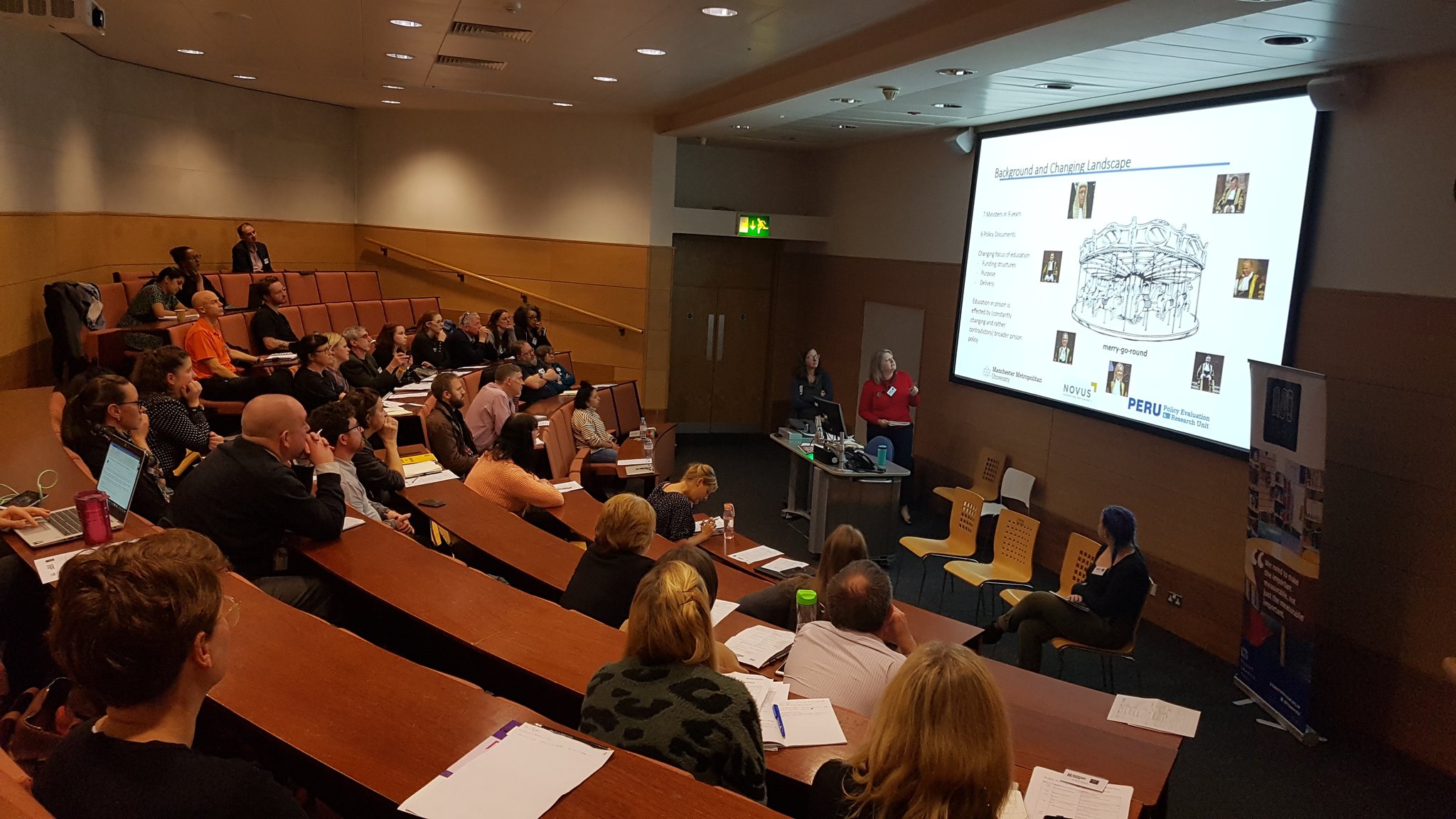
On 6th November, we held our second PLAN seminar in the current series. Entitled ‘Putting Pedagogy into Practice,’ the aim of the event was to bring practitioners and researchers together, from a range of disciplines, to build and strengthen the knowledge base around prison education.
Rt Hon Sir Simon Hughes
Our keynote address was delivered by Rt Hon Sir Simon Hughes, former Minister for Justice and now Chancellor of London South Bank University, who talked about the importance of education for wellbeing, not just qualifications.
Simon outlined his role with the Open University (OU), advising on education policy for the nearly 2000 people studying with the OU in secure environments, which includes psychiatric hospitals and prisons. Simon said that in his experience the biggest motivating factor for young men studying in prison is their families. He also talked about the importance of peer support.
We must lobby to put prison education back on the agenda
Simon argued that the forthcoming election is an opportunity to lobby and get prison education back on the agenda. He described his time in government, and the limited briefing he received about relevant research, good practice and lessons from abroad. He concluded his address with a powerful call to arms: ‘we must lobby to put prison education back on the agenda’, he argued. In particular he encouraged academics to play an important role in lobbying for change, summarising their research findings for politicians and the wider public and engaging with local media.
Sally Garrett
Sally Garrett, Director of Operations at Novus talked about the challenges of delivering prison education in changing times. She highlighted that in the last nine years there have been seven ministers with responsibility for prisons and that the constantly changing criminal justice system affects the delivery of education in custody. Sally explained that these challenges led to Novus deciding that they needed to work with researchers to hone their offer and assess what was effective in prison education.
A relationship like this is important became it allows academics to do research which has a direct impact on practice
They commissioned the Policy and Evaluation Research Unit at Manchester Metropolitan University (MMU) to do a Rapid Evidence Assessment to look at ‘does prison education work?’ They followed this up with a Realist Review, looking at how education worked and what was the impact on people in prison. Dr Kirstine Szifris from MMU explained that from her perspective a relationship like this is important became it allows academics to do research which has a direct impact on practice. It allows for a slow, safe research space with open channels of communication.
Annabel Thody
Following this, Annabel Thody, a teacher from HMP Feltham, talked through her research into sociolinguistics in young adult education.
When her students were engaged with the course material they had significant skills in applying the English language and wanted to demonstrate this.
She has been reviewing whether students are not achieving in literacy because they are being asked to do it in the wrong way. She varied her teaching methods – for instance, asking her students to translate a rap into Standard English. She found that when her students were engaged with the course material they had significant skills in applying the English language and wanted to demonstrate this. This research has shaped her personal practice and pedagogy in her prison English classroom.
Professor Gabrielle Ivinson
In the final talk of the day, Professor Gabrielle Ivinson, Professor of Education and Community at MMU, discussed her work with people who had experienced trauma. She explored how perspectives of education and behaviour have changed since the 19th Century and how this shapes what is regarded as ‘good’ pedagogy. She challenged the seminar to think differently, and look beyond a narrow set of ideas and assumptions about knowledge – pointing out that the prison system is full of people who are a product of this narrow definition of intelligence. Gabrielle argued that we need to create a route that enables expression, especially for vulnerable young people; she talked about the importance of finding a ‘hook’ to engage learning.
We need to create a route that enables expression, especially for vulnerable young people
This seminar is part of a number of activities of the PLAN network over the coming months. We will be using these seminars to support the building of our resource library on our website and create a research hub for academics working on prison education.
To keep up to date with the activities of the PLAN network, and to join us at future events, sign up to our mailing list here.
Related Posts
27 Aug 2017 | Learner voice
So far this year, PET has funded over 200 people to take GCSE, AS Levels and A Levels in prison, a handful of whom managed to take their exams inside. As they await, lament or celebrate their results along with students up and down the country, we asked them why they chose to study these subjects, what effect it has had, and what they hope to do next.
07 Feb 2018 | Michelle's story | Learner voice, Women
Michelle was 22, with a six-year-old daughter, when she received a life prison sentence. She was funded by PET to begin a degree which she went on to use to help vulnerable women in her local area.
